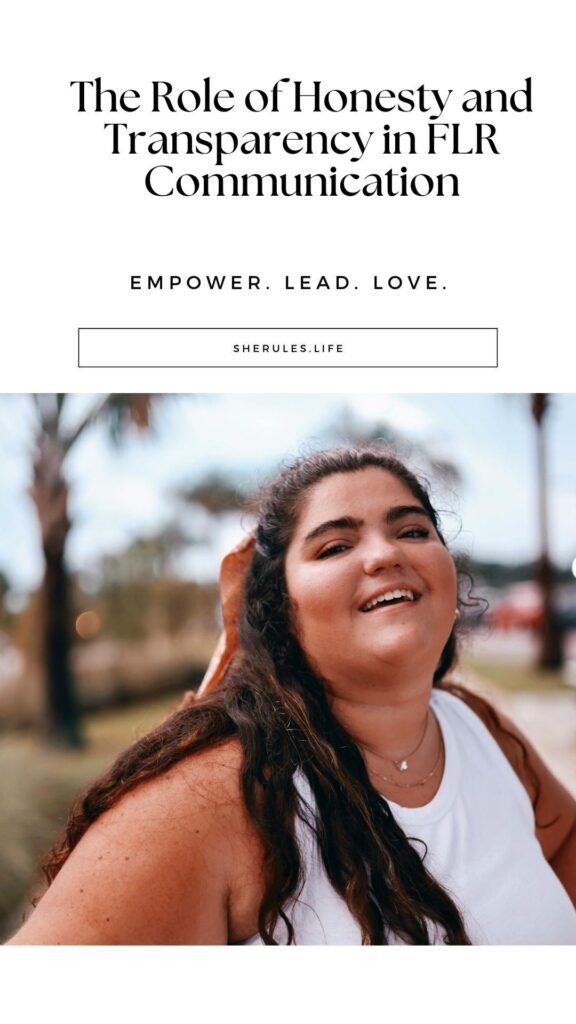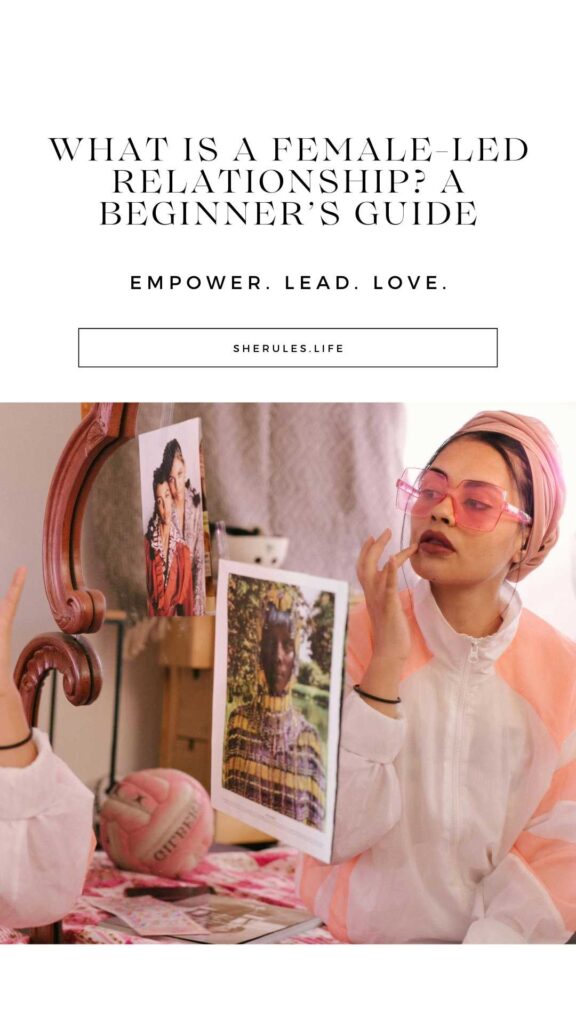
In a Female Led Relationship (FLR), honesty and transparency are the cornerstones of a thriving, harmonious partnership.
These qualities are more than just buzzwords; they are the lifeblood of genuine connection and mutual respect.
Understanding and embracing honesty and transparency can significantly enhance the dynamics of an FLR, creating a relationship built on trust, support, and love.
Let’s dive into why these elements are so crucial and how they can positively impact both partners in an FLR.
Understanding Honesty and Transparency
At its core, honesty means being truthful in your words and actions. It involves sharing your thoughts, feelings, and intentions openly, without deceit or hidden agendas.
Transparency goes hand in hand with honesty. It’s about making your intentions clear and being open about your actions and decisions. In an FLR, this means that both partners need to engage in open communication and be willing to share their true selves.
In a traditional setting, roles and expectations might be more rigid, but in an FLR, where the woman typically takes a leading role, honesty and transparency become even more significant.
They ensure that both partners are on the same page and that misunderstandings are minimized. When these values are upheld, it leads to a more balanced and fulfilling relationship.
The Benefits of Honesty and Transparency
Honesty and transparency offer numerous benefits in an FLR. First and foremost, they build trust. When both partners are open with each other, it eliminates doubt and suspicion.
Trust is essential for any relationship, but in an FLR, where roles and dynamics might be more fluid, it becomes even more critical. When trust is established, it strengthens the bond between partners and fosters a deeper connection.
Moreover, honesty and transparency lead to better problem-solving. In any relationship, conflicts are bound to arise.
However, when both partners communicate openly and honestly, they are more likely to address issues constructively. This approach prevents small problems from escalating into major disputes and helps find solutions that satisfy both parties.
Another significant benefit is emotional intimacy. When partners are transparent about their feelings and desires, it creates a safe space for vulnerability.
This emotional openness allows both partners to understand each other on a deeper level and fosters a more profound connection.
Applying Honesty and Transparency in Daily Interactions
To effectively incorporate honesty and transparency into your FLR, consider the following practical steps:
- Open Communication: Regularly check in with each other about your feelings, needs, and expectations. This helps in avoiding misunderstandings and ensures that both partners are aligned.
- Constructive Feedback: Provide and receive feedback in a constructive manner. Be honest about what is working and what isn’t, but always approach it with kindness and a solution-oriented mindset. For more on this, you might find this article on giving and receiving feedback in an FLR helpful.
- Apologize Sincerely: When mistakes happen, it’s important to apologize sincerely. A genuine apology demonstrates that you acknowledge the impact of your actions and are committed to making amends. Learn more about the importance of apologies in an FLR here.
- Express Needs and Desires: Be clear about your needs and desires in the relationship. This openness helps in setting clear expectations and prevents feelings of frustration or resentment.
- Respect Boundaries: Transparency also involves respecting each other’s boundaries. Being open about what you are comfortable with and understanding your partner’s limits helps in creating a respectful and loving environment.
Honesty and Transparency in Action
One practical example of honesty and transparency in an FLR is discussing financial matters. In many relationships, finances can be a sensitive topic. However, in an FLR, where the dynamics may be different from traditional relationships, being transparent about financial situations, goals, and concerns can prevent conflicts and build a stronger partnership.
Another example is in managing household responsibilities. Being open about who is responsible for what and discussing any changes or issues as they arise can help in maintaining balance and fairness in the relationship.
Challenges and Solutions
While honesty and transparency are crucial, they can sometimes be challenging to maintain.
Fear of judgment, discomfort with vulnerability, or past experiences can make it difficult to be completely open. However, addressing these challenges is essential for the health of the relationship.
To overcome these hurdles, start by building a foundation of trust. Take small steps towards openness and gradually work towards more significant disclosures.
Remember that being honest does not mean being harsh; it’s about being genuine and respectful.
The Role of Empathy
Empathy plays a significant role in fostering honesty and transparency. When you approach conversations with empathy, you are more likely to listen and respond thoughtfully.
This not only improves communication but also strengthens the emotional connection between partners.
Conclusion
In a Female Led Relationship, honesty and transparency are more than just ideals; they are essential for creating a thriving, supportive, and loving partnership.
By embracing these values, both partners can build a stronger connection, resolve conflicts more effectively, and foster a deeper understanding of each other.
To explore more about FLR dynamics and enhance your relationship, feel free to check out these additional resources:
- Why You Should Sit to Pee in FLR
- How to Give and Receive Feedback in a Female Led Relationship
- How to Apologize to Your Wife and Why It Matters in FLR
If you found this article helpful and would like to support the ongoing work on this blog, consider buying me a coffee. Your support means a lot and keeps me motivated.
You can contribute here. Thank you for your support and for being a part of this journey!

